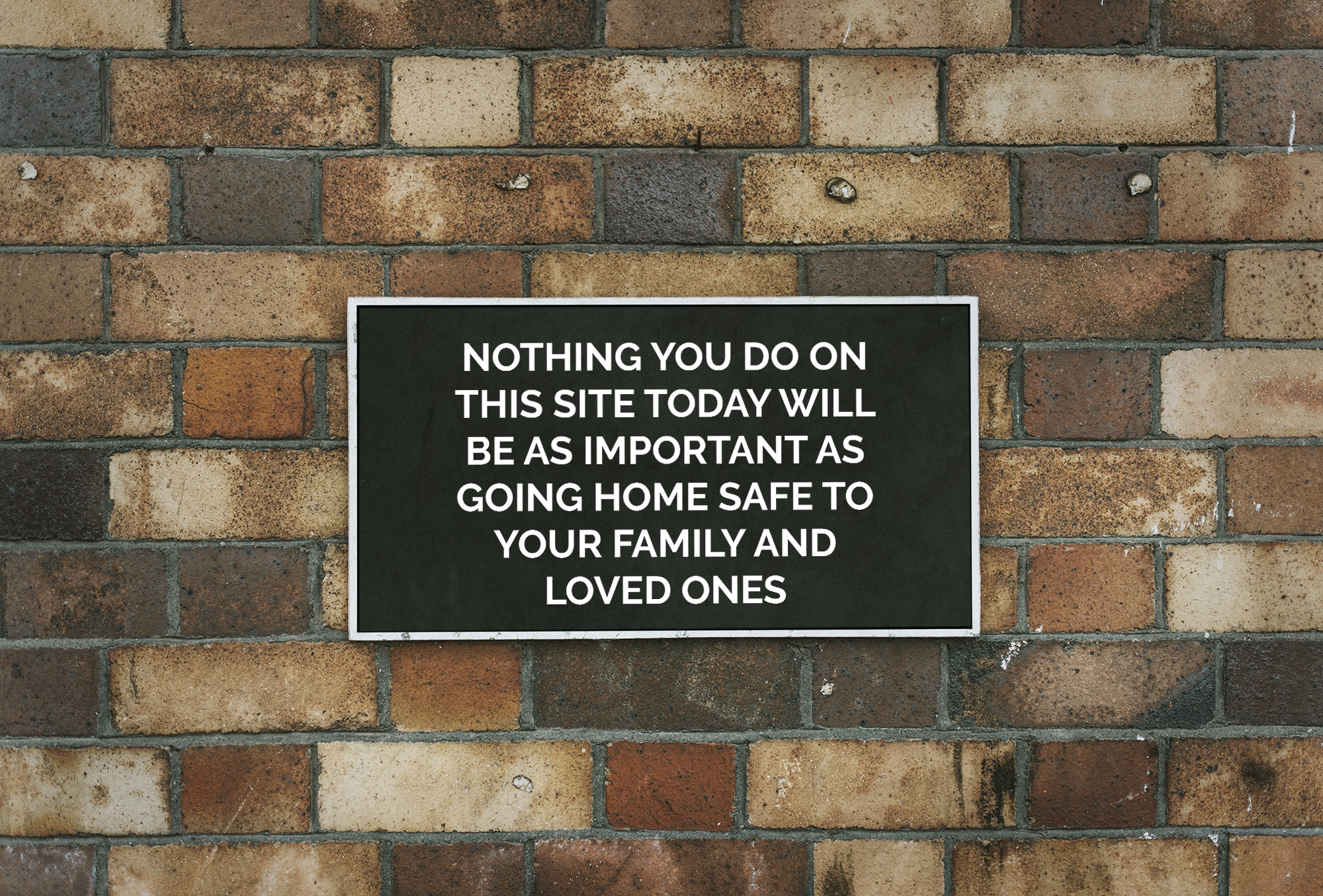Resources
All the latest insights, news and resources
From topical webinars to helpful guides and templates, we are constantly producing up-to-date, relevant materials to help employers manage their workforce and safety responsibilities.

Free webinar | Available now
Employment Law Update | April changes and what lies ahead
2024 is shaping up to be a busy year for employment law.
From holiday pay to TUPE, protections for pregnant mothers to flexible working, a raft of new regulations are on their way – and some have already been brought into force at the start of the year.
To help you digest these developments and understand how they might impact your policies, procedures and staff training, our employment law experts are returning for another free one-hour webinar, where they will walk you through what’s new, what’s just around the corner, and what’s still to come.

Free webinar | Available now
Workplace Incidents | prevention, investigation and post-accident protocols

Free webinar | Available now
Disciplinaries and Investigations | when is action warranted?
Personalise your content
Type
All
Blogs
Brochures & Factsheets
COVID-19
Events
Guides
News
Templates
Testimonials
Videos
Webinars
Whitepapers
Category
All
Employment Law Resources
Health & Safety Resources

Climate change and OHS | Safeguarding workers in a changing world
Blog17 Apr 2024

Enhancing health and safety in schools | 8 strategies for ensuring continuous improvement
Blog14 Apr 2024

HSE continues to expand its asbestos campaign
Blog16 Apr 2024

Guide to Workplace Health and Safety Incidents
Guide12 Apr 2024

Leveraging the candidate journey to maximise recruitment success
Blog10 Apr 2024

Guide to Employee Wellbeing and Management Under the CQC's New Framework
Guide04 Apr 2024

Managing employees suspected or convicted of criminal offences
Blog20 Mar 2024

Employment Facts & Figures Reference Guide 2024/25
Guide20 Mar 2024

Unveiling Key Insights | the dynamic partnership between HR professionals and line managers in employee relations.
Webinar 29 Feb 2024

CQC's New Framework| interpreting employee wellbeing and management statements
Webinar29 Feb 2024

CQC Policy Creation Factsheet
Factsheet28 Feb 2024

CQC Registrations Factsheet
Factsheet28 Feb 2024

CQC Mock Inspections Factsheet
Factsheet28 Feb 2024

CQC Compliance Support Factsheet
Factsheet28 Feb 2024

Avoiding discrimination | The impact of a rising State Pension age on PHI schemes
Blog28 Feb 2024

Exploring recruitment trends in 2024 | What’s changing in the hiring landscape?
Blog27 Feb 2024

Flexible working | Acas survey reveals homeworking continues to rise ahead of April changes
Blog22 Feb 2024

Guide to Disciplinaries and Investigations
Guide22 Feb 2024

The Modern Way of Training | The importance of a blended approach
Whitepaper20 Feb 2024

Holiday Rights Detailed Reference Guide for Education Providers
Guide15 Feb 2024

Future-Ready Safety Guide
Guide14 Feb 2024

Future-proofing independent schools | Increased TPS costs and changing teachers’ contracts
Blog13 Feb 2024

Supporting employees during Ramadan
Blog12 Feb 2024

Reforms to holiday rights | 7 important updates for schools
Blog31 Jan 2024

Personal Relationships at Work Policy
Template29 Jan 2024

Holiday Rights Detailed Reference Guide
Guide25 Jan 2024

Holiday Rights Quick Reference Guide
Guide25 Jan 2024

Crafting compelling and inclusive job adverts | 5 top tips
Blog25 Jan 2024

Immediate Changes to Holiday Pay Legislation for Schools
Webinar25 Jan 2024

Workplace stress | Why employers should put mental health front and centre in 2024
Blog24 Jan 2024

WorkNest survey unearths mounting delays in disciplinary processes – with most cases now taking 1 month or more to complete
Blog23 Jan 2024

Workplace transport risk assessments | 7 tips for separating vehicles and pedestrians
Blog22 Jan 2024

Noise at work | The SHOUT test!
Blog22 Jan 2024

WorkNest Welcomes New Year with Female Duo at the Helm of Legal Services
News18 Jan 2024

Hybrid work | Re-establishing expectations around office attendance in 2024
Blog15 Jan 2024

Guide to Employment Law Changes 2024
Guide02 Jan 2024

Fire Safety Legislation Changes - Guidance for Non-Residential Premises
Guide15 Dec 2023

Fire Safety Legislation Changes - Guidance for Residential Premises
Guide15 Dec 2023

Resolving Workplace Conflict Flowchart
Guide07 Dec 2023

Employment Law Update | what’s coming in 2024
Webinar30 Nov 2023

Guide to Preparing for the CQC's New Single Assessment Framework
Guide29 Nov 2023

Holiday Pay 101
Guide27 Nov 2023

Employing ex-offenders | Changes to disclosure periods for criminal convictions in England and Wales
Blog27 Nov 2023

End-of-year recruitment | Should you hold off hiring until after the holidays?
Blog24 Nov 2023

HSE statistics 2023 show slow to no progress in driving down work-related injuries and ill health
Blog22 Nov 2023

WorkNest People and Management Training Brochure
Brochure

Maintaining compliance | The crucial role of mock inspections in the care sector
Blog17 Nov 23

CQC evidence categories | New assessment framework update
Blog17 Nov 2023

7. SafetyNest Bitesize Video - Template Admin

Interpreting the CQC’s New Framework | what you need to know
Webinar15 Nov 2023

Quiet firing | Why silence isn’t golden when it comes to employee management
Blog13 Nov 2023

Christmas Party Memo
Template09 Nov 2023

Guide to Workplace Conflict
Guide06 Nov 2023

How to safely dismiss short-service staff
Blog01 Nov 2023

Recruitment | 5 top tips for more effective interviewing
Blog31 Oct 2023

Reluctant Returners Guide
Guide25 Oct 2023

Guide to Supporting Neurodiversity in the Workplace
Guide24 Oct 2023

LearningNest eLearning Essentials Factsheet
Factsheet

LearningNest eLearning Premier Factsheet
Factsheet

LearningNest eLearning Enterprise Factsheet
Factsheet

LearningNest eLearning Enterprise Brochure
Brochure

LearningNest eLearning Essentials Brochure
Brochure

LearningNest eLearning Premier Brochure
Brochure

Alcohol at work events | How to prevent 3 sobering HR problems this party season
Blog23 Oct 2023

CIPD Annual Conference and Exhibition 2023

Resolving Workplace Conflict | strategies for intervention and prevention
Webinar19 Oct 2023

CaseNest Client Demonstration

Supreme Court overturns ‘three month break’ rule in holiday pay claims
Blog13 Oct 2023

Workplace conflict accounts for nearly half of all grievances, according to WorkNest survey
Blog09 Oct 2023

Catholic Blind Institute
Customer Story - PDF

5 key recruitment trends that could help combat staff shortages in the charity sector
Blog05 Oct 2023

Refusals to Work Guide
Guide04 Oct 2023

New legislation grants UK workers the right to request more stable work schedules
Blog02 Oct 2023

myWorkNest - Administration Guide
Guide

myWorkNest - Troubleshooting Guide
Guide

myWorkNest Onboarding Video
Onboarding Video7 minutes 10 seconds

2. SafetyNest Bitesize Video - Audit
Bitesize Video2 minutes 26 seconds

8. SafetyNest Bitesize Video - Scores
Bitesize Video3 minutes 29 seconds

6. SafetyNest Bitesize Video - Risk Assessments
Bitesize Video3 minutes 28 seconds

4. SafetyNest Bitesize Video - Monitoring
Bitesize Video3 minutes 17 seconds

1. SafetyNest Bitesize Video - Introduction
Bitesize Video23 seconds

5. SafetyNest Bitesize Video - Incidents
Bitesize Video3 minutes

3. SafetyNest Bitesize Video - Compliance
Bitesize Video3 minutes 10 seconds

Social media | Managing the recent surge in unfiltered personal posts
Blog28 Sep 2023

COVID, concrete and other concerns | Handling refusals to work on health and safety grounds
Blog21 Sep 2023

Artificial Intelligence in the Workplace Policy
Template14 Sep 2023

TUPE update | Court confirms share incentive plans CAN transfer across
Blog13 Sep 2023

Guide to Inclusive Language in the Workplace
Guide04 Sep 2023

Responding to the RAAC concrete crisis | Safety measures for schools and other sectors
Blog01 Sep 2023

Confronting 10 Workplace Toxicity Challenges | live Q&A with legal and HR experts
Webinar31 Aug 2023

Bullying bosses | Spotting the problem and potential strategies
Blog24 Aug 2023

Ready, set, match | Your gameplan for workplace harmony during the Women’s World Cup final
Blog17 Aug 2023

Proving the problem | How to evidence poor employee behaviour
Blog11 Aug 2023

Flexible Working Act 2023 | A fundamental shift or a fuss over nothing?
Blog03 Aug 2023

Bullying and Harassment Guidance Note
Guide28 Jul 2023

Bullying and Harassment Policy
Template28 Jul 2023

How to manage sickness absence during an ongoing HR process
Blog26 Jul 2023

Guide to Tackling Toxicity in the Workplace
Guide17 Jul 2023

10 Top Tips | Having Difficult Conversations With Difficult Employees
Guide17 Jul 2023

Crumbling classrooms | Watchdog report shines light on unsafe school buildings
Blog14 Jul 2023

HSE’s fatal injury statistics 2022/23 suggest workplaces are no safer than in 2016
Blog06 Jul 2023

Tackling Toxic Behaviours in the Workplace
Webinar29 June 2023

ASVA partners with WorkNest to provide Employment Law, HR and Health & Safety advice to its members
News - Press Release27 Jun 2023

Manchester High School for Girls
Customer Story - PDF

Game and Wildlife Conservation Trust
Customer Story - PDF

Buxton Crescent Hotel - Customer Story
Customer Story - PDF

WorkNest survey shows 70% of toxic behaviour in the workplace goes unresolved
Blog14 Jun 2023

ChatGPT and the workplace | Minimising the risk of employee misuse
Blog14 Jun 2023

ChatGPT and the workplace | Protecting your recruitment process against AI-related issues
Blog09 Jun 2023

ChatGPT and the workplace | Addressing concerns around job security
Blog09 Jun 2023

False fires | Fire services in Scotland to stop attending automatic alarm call outs from 1 July
Blog06 Jun 2023

Updating the Equality Act definition of ‘sex’ | ECHR opinion and considerations for the workplace
Blog30 May 2023

Reasonable adjustments for mental health | Acas publishes new guidance for employers
Blog19 May 2023

Guide to Employment Law Changes 2023
Guide17 May 2023

Fee for Intervention | Why health and safety breaches could cost your business more in 2023

Government abandons ‘sunsetting’ provisions of Retained EU Law Bill
Blog12 May 2023

Addressing Sickness, Performance and Capability Concerns | Exeter
Exeter Employment Law and HR Seminar 22 June

Addressing Sickness, Performance and Capability Concerns | Birmingham
Birmingham Employment Law and HR Seminar 20 June

Addressing Sickness, Performance and Capability Concerns | Newcastle
Newcastle Employment Law and HR Seminar 15 June

Addressing Sickness, Performance and Capability Concerns | Bristol
Bristol Employment Law and HR Seminar 13 June

Addressing Sickness, Performance and Capability Concerns | Glasgow
Glasgow Employment Law and HR Seminar 08 June

Addressing Sickness, Performance and Capability Concerns | London AM Session
London Employment Law and HR Seminar06 June 2023 - Morning Session

Employment Law Update | changes to family-friendly rights and flexible working
Webinar27 April 2023

Virtual Health and Social Care Seminar | employment reforms, recruitment and CQC regulations
Webinar26 Apr 2023

Retail Employment Law Update | reducing hours, redundancies and apprenticeship rules
Webinar20 April 2023

Conduct v Performance Guide
Guide06 Apr 2022

The Definitive Employer's Guide to Paternity Leave and Pay
Guide23 Mar 2023

The Definitive Employer's Guide to Maternity Leave and Pay
Guide23 Mar 2023

6 common long-term sick leave frustrations – and why you can’t just dismiss
Blog22 Mar 2023

New WorkNest Survey Identifies Alarming Link Between Financial Pressures and Employee Underperformance
News - Press Release14 Mar 2023

WorkNest at CIPD Scotland Annual Conference 2023
Exhibition 30 Mar 2023

Employment Law, HR and Health & Safety Support for MATS and Academies Brochure
Brochure

Solving Sickness and Performance Problems
London Employment Law and HR Seminar21 Mar 2023 - Afternoon Session

Solving Sickness and Performance Problems
London Employment Law and HR Seminar22 Mar 2023 - Afternoon Session

‘Picking on’ or performance managing? How to address grievances from ‘sensitive’ staff
Blog28 Feb 2023

King’s Coronation bank holiday | Do employees have a right to time off on 8 May?
Blog24 Feb 2023

Disability harassment in the workplace | Is ignorance an excuse?
Blog24 Feb 2023

Managing Performance Issues | following a fair process, unexpected grievances and dismissals
Webinar23 Feb 2023

Health and safety culture | 7 ways to engage your employees in workplace health and safety
Blog22 Feb 2023

WorkNest Launches SafetyNest to Help Businesses Mitigate Rising Health and Safety Penalties for Non-Compliance
News22 Feb 2023

Quick-Fire Guide to the Fire Safety Regulations
Guide17 Feb 2023

Example Redundancy Selection Matrix
Template17 Feb 2023

Short Guide to Supporting Staff Through Redundancy
Guide17 Feb 2023

10-Step Guide to Redundancy
Guide17 Feb 2023

Solving Sickness and Performance Problems
London Employment Law and HR Seminar22 Mar 2023

Solving Sickness and Performance Problems
London Employment Law and HR Seminar21 Mar 2023

Solving Sickness and Performance Problems
Reading Employment Law and HR Seminar16 Mar 2023

Solving Sickness and Performance Problems
Manchester Employment Law and HR Seminar14 Mar 2023

Solving Sickness and Performance Problems
Glasgow Employment Law and HR Seminar07 Mar 2023

Solving Sickness and Performance Problems
Liverpool Employment Law and HR Seminar02 Mar 2023

Teacher strikes | 10 things schools need to know about industrial action
Blog09 Feb 2023

Remote redundancy | Is consultation via Zoom, email or phone legal?
Blog30 Jan 2023

The future of fire and rehire | Could a new Code of Practice put a stop to pay cut ultimatums?
Blog02 Feb 2023

Industrial Action FAQ for Schools
Guide30 Jan 2023

Redundancy | Giving staff paid time off to job hunt
Blog27 Jan 2023

Redundancy and Restructuring | process, people and protecting your business
Webinar26 Jan 2023

Health and Safety in Schools | An Introduction to our Four Pillar Approach
Guide25 Jan 2023

Education Breakfast Briefing | industrial action and strikes in schools
Webinar24 Jan 2023

Government launches consultation on holiday pay entitlement for part-year workers
Blog13 Jan 2023

7 key strategies to avoid redundancies
Blog10 Jan 2023

Are you in a redundancy situation?
Blog09 Jan 2023

10 top health and safety tips
Blog04 Jan 2023

Fair and unfair dismissals
Blog04 Jan 2023

8 New Year’s health and safety resolutions your business should consider
Blog04 Jan 2023

6 key ingredients of a solid sickness absence policy
Blog03 Jan 2023

HSE statistics for education show significantly higher rates of stress – and a possible safety plateau
Blog05 Dec 2022

HSE statistics 2022 reveal a sharp rise in worker injuries
Blog23 Nov 2022

5 Ways to Support Your Staff Financially
Guide17 Nov 2022

Cost of doing business crisis | Moving forward with staff on long-term sick leave
Blog14 Nov 2022

Could the cost of living crisis provide a catalyst for holiday pay claims?
Blog07 Nov 2022

HSE statistics for education show significantly higher rates of stress and a possible safety plateau
Blog05 Nov 2022

HR's Guide to the Retained EU Law (Revocation and Reform) Bill
Guide02 Nov 2022

Single points of failure | How recruitment and retention challenges might impact health and safety
Blog28 Oct 2022

The recent rise in settlement agreements – and employees refusing to sign them
Blog24 Oct 2022

Cost of Living | 5 ways to support your employees' financial wellbeing
Webinar20 Oct 2022

Cost of living bonuses | What employers need to know before providing financial perks
Blog14 Oct 2022

Menopause in the Workplace | Some regulations to be aware of
Video 07 Oct 2022

WorkNest at CIPD Annual Conference and Exhibition 2022
Exhibition 9 & 10 Nov 2022

Menopause Risk Assessment (Person-Centred) Template
Template 05 Oct 2022

Q&A on Managing Menopause in the Workplace with Sarah Bunker, Senior Solicitor
Blog 04 Oct 2022

Coping with the cost of living | Managing employees’ drug and alcohol misuse
Blog27 Sep 2022

Harpur Trust v Brazel FAQ
Guide21 Sep 2022

How to Calculate Holiday Entitlement and Pay | urgent update for employers
Webinar08 Sep 2022

Protected Characteristics 101
Guide08 Sep 2022

The recent rise of grievances involving gaslighting
Blog07 Sep 2022

Court confirms whistleblowers can be fairly dismissed over conduct
Blog30 Aug 2022

Protected Characteristics 101
Webinar18 August 2022

Short Guide to Long COVID
Guide18 Aug 2022

Managing Menopause in the Workplace
Webinar11 Aug 2023

Managing Menopause in the Workplace
Webinar11 Aug 2022

Menopause | Legislative reforms that may be coming down the track
Blog11 Aug 2022

Esp Law and HR Solutions UK Selected as Finalists in Personnel Today Awards 2022
Blog08 Aug 2022

Revealed: the common root causes behind ‘wholly avoidable’ workplace accidents
Blog03 Aug 2022

5 high health and safety fines from the second quarter of 2022
Blog01 Aug 2022

Preparing for the New CQC Framework: 101 for Care Home Providers
Guide27 Jul 2022

Guide to Managing Menopause in the Workplace
Guide27 Jul 2022

How Better Health and Safety Practices Can Improve Your Claims Defensibility
Webinar27 Jul 2022

Harpur Trust v Brazel | Supreme Court confirms pro-rating holiday pay for part-year workers is unlawful
Blog20 Jul 2022

Maintaining Standards of Care
Webinar20 Jul 2022

WorkNest’s HR and Employment Law service strengthened by Vista acquisition
News - Press Release19 Jul 2022

Reduced Workforce Health & Safety Checklist
Checklist15 Jul 2022

Menopause Policy
Template15 Jul 2022

Performance Management Flowchart
Guide15 Jul 2022

Guide to Safe School Trips
Guide15 Jul 2022

Recruitment Checklist for Schools
Guide14 Jul 2022

Individual Stress Risk Assessment
Template14 Jul 2022

Quarterly Breakfast Briefing for School Leaders | legally compliant recruitment and safe school trips
Webinar13 Jul 2022

HSE statistics | Some progress but fatal injury rate remains ‘broadly flat’
Blog12 Jul 2022

SME End-to-End Employee Management Brochure
Brochure

Easier access to fit notes | Good or bad news for employers?
Blog08 Jul 2022

BeaverFit - Customer Story
Customer Story - PDF

Menopause at work | An employer's guide
Blog30 Jun 2022

6 absence challenges to prepare for this summer
Blog30 Jun 2022

Performance Managing Staff With Medical Conditions
Webinar28 Jun 2022

6 common health and safety training mistakes | Top tips for getting it right
Blog24 Jun 2022

WorkNest's Fixed-Fee Health & Safety Support - Policies and Handbooks
Video

WorkNest's Fixed-Fee Health & Safety Support - Dedicated Health & Safety Consultant
Video

WorkNest's Fixed-Fee Health & Safety Support
Video

WorkNest's Fixed-Fee Employment Law & HR Advisory Service - Litigation Support
Video

WorkNest's Fixed-Fee Employment Law & HR Advisory Service - Contracts & Handbooks
Video

WorkNest's Fixed-Fee Employment Law & HR Advisory Service - Advice Line
Video

Safe reoccupation | 5 health and safety checks you might have missed
Blog10 Jun 2022

Reduced Workforce Health and Safety Guide
Guide08 Jun 2022

Guide to Dismissing Employees Who Pull Frequent Sickies
Guide08 Jun 2022

Stranded staff | What to do when employees can’t work due to flight cancellations
Blog07 Jun 2022

HR Solutions acquisition grows WorkNest’s HR and Health & Safety service
News - Press Release06 Jun 2022

No jab, no job dismissals in the Employment Tribunal
News - Scottish Legal News30 May 2022

Holiday pay calculations for part-year workers could be about to change again – here’s why
Blog26 May 2022

Work from wherever? | Things to consider before allowing employees to work from abroad
Blog25 May 2022

Employee Wellbeing | supporting line managers in the new working world
Webinar19 May 2022

Employment Law Update | reluctant returners, misconduct and holiday pay calculations
Webinar18 May 2022

Reduced workforce? Here’s 5 health and safety areas you need to revisit
Blog18 May 2022

Fee for Intervention | Why health and safety breaches could cost your business more in 2022
Blog16 May 2022

Remote work isolation | How employers can help combat loneliness
Blog12 May 2022

Recent cases highlight continued work at height failings
Blog06 May 2022

Retail Recovery | restructuring, safety risks and staff absence
Webinar05 May 2022

Managing organisational change | How to keep people happy
Blog04 May 2022

Homeworking Risk Assessment Template
Template28 Apr 2022

Initial Audit Form
Template28 Apr 2022

Symptoms Chart
Poster28 Apr 2022

Can You Be 100% Health and Safety Compliant All the Time?
Webinar21 Apr 2022

5 ways to combat 2022’s recruitment challenges when you can’t pay more
Blog15 Apr 2022

A war of words | Managing employees’ political views on the Russia-Ukraine conflict
Blog13 Apr 2022

Outdoor Visiting Protocol - Care Homes
Template11 Apr 2022

Indoor Visiting Protocol - Care Homes
Template11 Apr 2022

PPE for Visitors - Care Homes
Guide11 Apr 2022

Homeworking Checklist and DSE Risk Assessment
Template11 Apr 2022

Homeworking and Health & Safety FAQ
Guide11 Apr 2022

Visiting Proforma - Care Homes (Scotland)
Template11 Apr 2022

Visiting Proforma - Care Homes (England)
Template11 Apr 2022

Investigation Form
Template11 Apr 2022

Testing Record
Template11 Apr 2022

Reoccupation Checklist
Template11 Apr 2022

Homeworkers' Guide to Health and Wellbeing
Guide11 Apr 2022

Health and Wellbeing Policy
Template11 Apr 2022

Staff side hustles | 10 employer questions answered
Blog07 Apr 2022

Face Coverings Policy
Template05 Apr 2022

Lay-Offs Guidance Note
Guide05 Apr 2022

Homeworking and Employment Law Guide
Guide05 Apr 2022

Home/Hybrid Working Policy
Template05 Apr 2022

Collective Consultation FAQ
Guide05 Apr 2022

Agreement to Homeworking Letter
Template05 Apr 2022

Vaccination FAQ (Northern Ireland)
Guide05 Apr 2022

Vaccination FAQ (Wales)
Guide05 Apr 2022

Vaccination FAQ (Scotland)
Guide04 Apr 2022

Vaccination FAQ (England)
Guide05 Apr 2022

Vaccination and Testing Guide
Guide05 Apr 2022

SSP - When is it Payable?
Guide05 Apr 2022

Refusals to Return to Work Guide
Guide05 Apr 2022

Post-Lockdown FAQ
Guide05 Apr 2022

Living With COVID Guide
Guide05 Apr 2022

International Travel and COVID Guide
Guide05 Apr 2022

Immunisation and Testing Policy
Template05 Apr 2022

Holidays (Travelling Abroad and Quarantine) Policy
Template05 Apr 2022

Compulsory Vaccination in Care Homes Guide
Guide05 Apr 2022

Compulsory Vaccination for Frontline HSC Workers Guide
Guide05 Apr 2022

Common Employment Scenarios
Guide05 Apr 2022

Common Employment Scenarios - Education
Guide05 Apr 2022

Care Home Immunisation Policy
Template05 Apr 2022

Absences and Refusals to Work FAQ
Guide05 Apr 2022

Employing people with autism
Blog04 Feb 2022

April Fools | Are employers liable for office horseplay and pranks gone wrong?
Blog01 Apr 2022

Cutting Workforce Costs | redundancies, settlements and changing T&Cs
Webinar31 Mar 2022

Conduct at work events | How should employers handle a Will Smith type situation?
Blog29 Mar 2022

What does ‘living with Covid’ mean for your workplace?
News - Arts Professional23 Mar 2022

Diversity and inclusion in the workplace | The state of play in 2022
Blog17 Mar 2022

Living with COVID | Keeping your workforce safe once restrictions are scrapped
Blog16 Mar 2022

Progressive HR policies for forward-thinking employers
News - People Management14 Mar 2022

Living with COVID | What if my employee tests positive?
Blog11 Mar 2022

Using the Hierarchy of Controls to make sensible safety decisions
Blog12 Mar 2022

Dealing with workplace disputes | 5 policies to have in your arsenal
Blog09 Mar 2022

The war in Ukraine | Employer considerations
Blog09 Mar 2022

Respect for one another at work means adopting diversity best practices
News - Insider08 Mar 2022

Living With COVID | the implications for staff, safety and the workplace
Webinar04 Mar 2022

Employment Facts & Figures Reference Guide 2022
Guide03 Mar 2022

How to manage health and safety as a governor or trustee
Blog02 Feb 2022

Luker Rowe - Customer Story
Customer Story - PDF

Tackling Top Employment Law Issues in the Third Sector
Webinar22 Feb 2022

Health and safety | 3 leadership lessons from the world of sport and politics
Blog22 Feb 2022

5 ways to improve workers’ heart health
Blog21 Feb 2022

"Get back to work" | Will PM's decision to end all COVID rules cause headaches for HR?
News - HR Grapevine22 Feb 2022

LORNA GEMMELL: WHAT IS THE NATIONAL DISABILITY STRATEGY?
News - HR Review16 Feb 2022

Cost of living crisis | HR 'under pressure' to help staff as inflation outpaces wage growth AGAIN
News - HR Grapevine15 Feb 2022

How to manage workplace romances | Problems, policies and possible legal risks
Blog14 Feb 2022

Valentine's Day | Should HR have an office romance policy?
News - HR Grapevine14 Feb 2022

Revisiting performance management | How to avoid legal risks when getting your team back on track
Blog11 Feb 2022

'Conflict & confusion' | HR at risk of legal battles with staff as last COVID rules set to end early
News - HR Grapevine10 Feb 2022

So what ARE the rules for the workplace now that Boris has declared Covid is OVER?
News - Mail Online09 Feb 2022

WorkNest Asks Whether: It's possible to be 100% compliant 100% of the time
Blog08 Feb 2022

'Painful abuse' | Tesla HR accused of punishing staff who complained of 'rampant' racism
News - HR Grapevine08 Feb 2022

Reminder to Take Holidays Memo
Template07 Feb 2022

Letter to Long-Term Sick Leave Employee Regarding Holidays
Template07 Feb 2022

World Cancer Day: An employer’s handbook
Blog04 Feb 2022

Worker who took unpaid leave due to mislabelled employment status wins holiday pay claim
Blog03 Feb 2022

10 common health and safety policy mistakes | Top tips for getting it right
Blog01 Feb 2022

HR experts reveal how THEY would conduct a Downing Street party investigation
News - HR Grapevine01 Feb 2022

Pros and cons of the four-day working week
Blog01 Feb 2022

Mind the Gap | Health and Safety to Remain a Priority
Webinar01 Feb 2022

Care home worker who refused vaccination was fairly dismissed
Blog26 Jan 2022

Managing Performance Issues | Following a Fair Process, Unexpected Grievances and Dismissals
Webinar25, 26 and 27 Jan 2022

Most employers are still ‘reactive’ when it comes to health and safety
News - Employer News24 Jan 2022

WorkNest appoints new Chief People Officer, Katie Muncaster
News - The Business Desk24 Jan 2022

Revised PPE Regulations | Employers’ duties extended to ALL workers
Blog31 Jan 2022

The protective clauses your contracts might be missing
News - People Management21 Jan 2022

Is your expenses policy fit for hybrid work?
Blog17 Jan 2022

Could employees with anti-vax beliefs be protected under discrimination laws?
Blog13 Jan 2022

Gavin Snell: Reflecting on our first few months as WorkNest – and the future
Blog12 Jan 2022

The nuts and bolts of hybrid working: Expenses and compensation
News - Working Mums11 Jan 2022

Supporting a return to work for staff suffering with long COVID
Blog10 Jan 2022

Guide to Employment Law Changes 2022
Guide07 Jan 2022

Health and safety in education | 5 fines from 2021 and focuses for 2022
Blog4 Jan 2022

The Definitive Employer's Guide to Staff Shortages
Guide24 Dec 2021

How to measure your health and safety performance in 2022 (and why it’s important)
Blog22 Dec 2021

ADVICE FOR EMPLOYERS ON GOVERNMENT'S NEW SICKNESS ABSENCE RULES
News - HR Review22 Dec 2021

SSP changes mean employers cannot demand a doctor’s note until 28 days
Blog21 Dec 2021

HSE annual statistics 2020/21 | The impact of COVID-19
Blog16 Dec 2021

Sexual harassment in the workplace | Where are we now?
Blog16 Dec 2021

Research identifies performance, happiness and trust gap between employers and employees
News - Employer News15 Dec 2021

Diocese of Chichester Academy Trust (DCAT) - Customer Story
Customer Story - PDF

The Manchester Grammar School - Customer Story
Customer Story - PDF

Invite to Discuss Expiry of Fixed-Term Contract
Template14 Dec 2021

Letter Extending or Renewing Fixed-Term Contract
Template14 Dec 2021

Fixed-Term Contracts Guidance Note
Guide14 Dec 2021

Selection of Contractors Checklist
Template14 Dec 2021

Contractors Safety Information
Template14 Dec 2021

Contractor Management Pack
Template14 Dec 2021

How to manage performance in the world of hybrid work
Blog13 Dec 2021

LearningNest e-Learning Pro Education Brochure
Brochure

How can businesses reduce the legal risks of Christmas parties?
News - People Management10 Dec 2021

Plan B | Why working from home is only part of the solution
Blog09 Dec 2021

Employment Law Update | Changes Coming in 2022 and 2021 Case Law Review
Webinar09 Dec 2021

Understanding “reasonably foreseeable” risk in health and safety
Blog07 Dec 2021

Is it time to ditch the employee dress code?
Blog06 Dec 2021

Can I change remote workers' pay?
Blog01 Dec 2021

Omicron | Initial advice for employers
Blog01 Dec 2021

Quarterly Breakfast Briefing for School Leaders | Fixed-Term Contracts and Contractor Management
Webinar01 Dec 2021

HR & Management Training Course Prospectus
Brochure

What makes a good health and safety leader?
Blog25 Nov 2021

Hybrid Working | How to Ensure Fair Treatment and Avoid Discrimination
Webinar25 Nov 2021

Who’s responsible for workplace health and safety?
Blog22 Nov 2021

Only half of employers are confident they’ll treat employees evenly and fairly
News - HR News22 Nov 2021

Firms overestimating employee loyalty after pandemic, research finds
News - People Management22 Nov 2021

Aberdeen Football Club - Customer Story
Customer Story - PDF

The Great Resignation | How can managers turn things around?
Blog17 Nov 2021

Employment Law and Health & Safety Update for South West Businesses
Webinar17 Nov 2021

8 qualities of effective remote managers
Blog16 Nov 2021

Mind the Gap Report
Whitepaper12 Nov 2021

Staff Shortages in Manufacturing | Agency Workers, Contingency Planning and Retention Incentives
Webinar11 Nov 2021

7 protective clauses your contracts may be missing
Blog09 Nov 2021

The Definitive Employer's Guide to Minimum Wage
Guide

Learning about disability AFTER dismissal | Is it still discrimination?
Blog02 Nov 2021

So you’ve decided to allow hybrid working – here’s 3 questions you may have now
Blog01 Nov 2021

Discrimination | Can menopause be classed as a disability?
Blog01 Nov 2021

Contractors and volunteers | Are you overlooking the health and safety of non-employees?
Blog29 Oct 2021

Autumn Budget 2021 | The key points for employers
Blog28 Oct 2021

What is a Competent Person?
Guide

Guide to Risk Assessments
Guide

CQC Compliance Brochure
Brochure

LearningNest e-Learning Trailer
Video

PeopleNest HR Software Trailer
Video

PeopleNest HR Software Brochure
Brochure

3 progressive HR policies for forward-thinking employers
Blog22 Oct 2021

Making vaccination mandatory | Breaking down the legal position
Blog20 Oct 2021

The dangers of facial recognition | Uber employees bring race discrimination claim
Blog20 Oct 2021

Contracts and Handbooks | Recommended Protections, Remote Working Considerations and Regulatory Updates
Webinar20 Oct 2021

Post-furlough redundancies | What are the alternatives?
Blog15 Oct 2021

HR IN REVIEW 10 – HEALTH AND SAFETY IN THE WORKPLACE WITH NICK WILSON
News - HR in Review Podcast04 Oct 2021

No jab, no sick pay? Morrison’s cuts the amount paid to unvaccinated staff
Blog01 Oct 2021

Estate agent wins sex discrimination claim against employer who refused her flexible working request
Blog01 Oct 2021

Self-isolation rules and vaccination status | How things have changed
Blog01 Oct 2021

Post-COVID Employment Challenges for the Charity Sector
Webinar28 Sep 2021

NICK WILSON: EMPLOYERS’ FOCUS MUST REMAIN ON SAFETY
News - HR Review24 Sep 2021

Gen Z | Keeping up with the demands of the next generation of workers
Blog21 Sep 2021

Do vaccinated employees need to take a PCR test following close contact with a positive COVID-19 case?
Blog20 Sep 2021

With restrictions lifted, what should COVID management look like now?
Blog15 Sep 2021

How to prepare for compulsory vaccination
News - The Care Home Environment14 Sep 2021

Compulsory vaccination in care | 7 steps employers should follow with staff
Blog13 Sep 2021

How the COVID pandemic has changed the perception of workplace health and safety
Blog09 Sep 2021

Putting health first in education
News - Independent Insight (iExcellence magazine)07 Sep 2021

Compulsory Vaccination in Care | Exemptions, Dismissals and Evidence for Inspections
Webinar02 Sep 2021

COVID Update for the Education Sector
Webinar01 Sep 2021

Strengthen your safety culture
News - IOSH Magazine01 Sep 2021

Highest recent health and safety fines, including record-breaking £6.5m penalty
Blog31 Aug 2021

How to investigate an accident or incident in your workplace
Blog26 Aug 2021

Employment law and Covid-19: The key issues
News - Headteacher Update23 Aug 2021

Workplace fatalities increase by more than a quarter
News - People Management20 Aug 2021

Workplace conflict | What it is and ways to manage it
Blog18 Aug 2021

Third of employers expect staff to return to the workplace full time, study finds
News - People Management17 Aug 2021

Facilitation Guidance Note
Guide17 Aug 2021

ABC members gain access to essential business compliance support
News - Sports Insight12 Aug 2021

Will redundancy be unfair if the employer didn’t consider furlough? 2 conflicting cases
Blog11 Aug 2021

Why the pingdemic will continue to create problems for manufacturers
Blog11 Aug 2021

Dealing with Disciplinaries | COVID Rules, Conduct and Other Concerns
Webinar11 Aug 2021

Golf Jobs Partners With Ellis Whittam To Provide Employment Law And Health & Safety Advice To Golf Employers
News - Business Mondays09 Aug 2021

Golf Jobs Partners With WorkNest To Provide Employment Law And Health & Safety Advice To Golf Employers
News - Business Mondays09 Aug 2021

5 lockdown changes Scottish employers need to know about (and what to do now)
Blog05 Aug 2021

Excessive absenteeism | When can employers take action?
Blog04 Aug 2021

Help, my employee won’t return to work
Blog03 Aug 2021

3 strategies for managing stress in the workplace
Blog03 Aug 2021

How to overcome the “generation gap” in the workplace
Blog30 Jul 2021

Relaxing of restrictions | How can retailers reduce risk?
Blog23 Jul 2021

Grievance Guidance Note
Guide22 Jul 2021

Pingdemic panic | Do employees need to self-isolate if notified by the COVID-19 app?
Blog22 Jul 2021

Workplace Conflict | Early Intervention, Estimated Costs and Employment Law
Webinar22 Jul 2021

Top Tips for Carrying Out Mediation
Guide21 Jul 2021

Mask confusion | Can we compel employees to wear face coverings at work?
Blog20 Jul 2021

Employment law SOS | Return to work anxiety and the right to switch off
News - Manufacturing Management20 Jul 2021

Returning to work after ‘freedom day’: what should businesses be doing?
News - People Management20 Jul 2021

Keeping employees safe post-lockdown | 5 things to do now
Blog16 Jul 2021

HSE statistics 2020/21 | More fatalities despite fewer people working?
Blog16 Jul 2021

Managing Work-Related Stress Resulting from Conflict, COVID and Other Causes
Webinar15 Jul 2021

Life After Lockdown | Helping Employers to Plan Ahead
Webinar14 Jul 2021

How to manage mental health related absences
Blog13 Jul 2021

What Risk Control Measures Will Remain in Retail Post-Lockdown?
Webinar13 Jul 2021

Why employees might not be entitled to the 2022 bonus bank holiday
Blog08 Jul 2021

Can (and should) employers mandate masks once restrictions are lifted?
News - People Management08 Jul 2021

Staycations, sickness and self-isolation | How to manage short-term summer absences
Blog05 Jul 2021

CQC Compliance acquisition bolsters Ellis Whittam’s services for health and social care providers
News - Press Release30 Jun 2021

Strengthening Your Sickness and Absence Framework (Suitable for SMEs)
Webinar24 Jun 2021

Being Health & Safety Compliant Video Series
Video Series2021

Here’s what you need to know about staff with ‘gender critical’ views
News - FE Week28 Jun 2021

Many firms uncertain over implementing hybrid working, research finds
News - People Management26 Jun 2021

Employee Induction Checklist
Template24 Jun 2021

Elevate Your Absence Management Framework (Suitable for Large Organisations)
Webinar24 Jun 2021

Six ways school leaders can tackle stress
Blog24 Jun 2021

How good health and safety practices help to reduce absence rates
Blog22 Jun 2021

Settled Status Guidance Note
Guide21 Jun 2021

COVID-19 | 3 ongoing absence challenges for employers
Blog18 Jun 2021

Quarterly Breakfast Briefing for School Leaders | Mental Health and Wellbeing in Education
Webinar17 Jun 2021

Carers Trust - Customer Story
Customer Story - PDF

Cater Leydon Millard acquisition strengthens Ellis Whittam’s employment law service
News - Press Release16 Jun 2021

Cater Leydon Millard acquisition strengthens WorkNest’s employment law service
News - Press Release16 Jun 2021

Almost half of businesses are unprepared for hybrid working, our research finds
Blog15 Jun 2021

How to strengthen your health and safety claims defensibility
Blog11 Jun 2021

HOW TO SUCCESSFULLY INTRODUCE HYBRID WORKING
News - Business Leader11 Jun 2021

Employee retention | How to avoid shedding staff post-lockdown
Blog09 Jun 2021

JAMES TAMM: ‘FIRE AND REHIRE’ – WHAT DO EMPLOYERS NEED TO KNOW?
News - HR Review07 Jun 2021

The health and safety implications of hybrid working
Blog07 Jun 2021

Global study finds 745,000 workers killed annually by long hours
Blog07 Jun 2021

Fire and rehire latest | Government and Tribunal weigh in
Blog02 Jun 2021

Violence against retail staff | Employers’ duties during COVID-19
Blog02 Jun 2021

The HR considerations of hybrid working
Blog01 Jun 2021

The legalities of hybrid working | 6 tips for employers
Blog27 May 2021

A right to disconnect? | Finding the formula for work-life balance in 2021
Blog21 May 2021

Employment law in education | 5 important updates for schools
Blog18 May 2021

HSE inspecting further education providers in England and Wales
Blog18 May 2021

Waking up to workplace conflict | Acas report claims disputes cost employers £1,000 per employee
Blog14 May 2021

COVID-19 Live Q&A: Harnessing a Hybrid Working Model
Webinar13 May 2021

New Wellbeing Charter offers mental health support boost for school staff
Blog12 May 2021

The end of furlough | What employers need to know about ‘fire and rehire’
Blog12 May 2021

Workplace stress | What HR can do
Blog11 May 2021

Health and safety dismissals | 2 recent cases employers need to know about
Blog07 May 2021

How to avoid mistakes when conducting risk assessments
News - People Management06 May 2021

“Patchy and inadequate” | 8 high health and safety fines handed to employers recently
Blog05 May 2021

The Aurora Group - Customer Story
Customer Story - PDF

3 post-pandemic challenges for HR
Blog04 May 2021

COVID-19 Live Q&A: Safely Reopening the Care Sector
Webinar29 Apr 2021

12 tips on how to avoid common risk assessment mistakes
News - IOSH Magazine29 Apr 2021

Quarterly Breakfast Briefing for School Leaders
Webinar28 Apr 2021

Employment challenges charity CEOs face as lockdown eases
News - ACEVO27 Apr 2021

COVID-19 Live Q&A: Reopening Hospitality & Leisure
Webinar22 Apr 2021

COVID fatigue | Keeping staff engaged with your health and safety controls
Blog20 Apr 2021

The post-pandemic workplace | Is hybrid working the answer?
Blog14 Apr 2021

COVID-19 Live Q&A: Challenges Facing Charities
Webinar14 Apr 2021

Guilty until proven innocent? | Why health and safety law puts the onus on employers
Blog08 Apr 2021

The return of non-essential retail | How to safely reopen your shop
Blog08 Apr 2021

Get prepared | HSE’s priorities for 2021
Blog06 Apr 2021

Is it time for an HR audit?
Blog30 Mar 2021

COVID-19 Live Q&A: Reopening Retail
Webinar24 March 2021

COVID-19 | What financial support is available for my business?
Blog19 Mar 2021

Whistleblowing claims soar as businesses prepare for a return to work
Blog18 Mar 2021

COVID-19 Live Q&A: What Vaccination Means for Manufacturers
Webinar18 March 2021

Help, my staff want to work from home
Blog15 Mar 2021

South Pennine Academies - Customer Story
Customer Story - PDF

Lockdown exit roadmap | The implications for employers
Blog4 Mar 2021

HSE criticised for using debt collection firms to carry out COVID-19 spot checks
Blog4 Mar 2021

Employment Status and IR35 Factsheet
Factsheet03 Mar 2021

5 employment law changes you need to know about in April 2021
Blog03 Mar 2021

The Route Map out of Lockdown (Scotland)
Webinar25 Feb 2021

Chester-headquartered Ellis Whittam accelerates growth with three acquisitions
News - Press Release03 Mar 2021

Chester-headquartered WorkNest accelerates growth with three acquisitions
News - Press Release03 Mar 2021

Employment Status and Uber FAQ
Guide02 Mar 2021

COVID-19 | The latest health and safety considerations for charities
Blog01 Mar 2021

Logistics | Managing Staff and Safety Protocols
Webinar25 Feb 2021

The Roadmap out of Lockdown
Webinar24 Feb 2021

Avoiding Unfair Dismissal Claims – Everything You Need to Know
News - Business Matters23 Feb 2021

Orca - Customer Story
Customer Story - PDF

Uber loses legal battle over drivers’ self-employed status
Blog19 Feb 2021

What the Handforth Parish Council meeting taught us about virtual communication
Blog18 Feb 2021

3 ways WorkNest can support your manufacturing business in 2021
Blog18 Feb 2021

Boris Johnson urged to declare 'long Covid' an 'occupational disease'
News - Mail Online18 Feb 2021

Cost of living | Managing pay rise pressure as an employer
Blog17 Feb 2021

Beaverfit - Customer Story
Customer Story - PDF

Moving Forward in the Third Sector
Webinar16 Feb 2021

Health and safety in logistics | 5 areas of focus for 2021
Blog15 Feb 2021

3 things HR will need to succeed in 2021
Blog09 Feb 2021

Equality and diversity | Court rules ‘stale’ training not enough to defend harassment claim
Blog09 Feb 2021

Promoting a positive workplace health and safety culture, led from the top
Blog08 Feb 2021

Health and Safety in Schools | An Introduction to our Four Pillar Approach
Guide03 Feb 2021

Experts reveal 10 greatest health and safety risks facing the education sector
Blog03 Feb 2021

HSE continues its COVID inspection regime with logistics under the spotlight
Blog01 Feb 2021

Forcing a return to the office | Risks and solutions
Blog01 Feb 2021

What to do when an HSE inspector calls
News - Supply Management28 Jan 2021

Help, an employee has COVID-19 | How to handle suspected and confirmed cases
Blog27 Jan 2021

3 ways WorkNest can support your charity in 2021
Blog27 Jan 2021

12-Point Risk Assessment Checklist
Template27 Jan 2021

12 common risk assessment mistakes | Top tips for getting it right
Blog26 Jan 2021

Can clinically extremely vulnerable people go to work during lockdown? | The latest
Blog20 Jan 2021

How to manage parents affected by school closures
Blog19 Jan 2021

10 Ways to Wellbeing | An employer's guide to supporting employees through COVID-19
Blog18 Jan 2021

10 Ways to Wellbeing
Guide18 Jan 2021

7 workplace safety tips for 2021
Blog14 Jan 2021

Furlough: Rishi Sunak may have ‘no choice’ but to extend furlough past April
News - Express.co.uk13 Jan 2021

What does 'reasonably practicable' mean when it comes to health and safety?
News - People Management11 Jan 2021

COVID-19 support | 'Lockdown leave' could save working parents
News - HR Grapevine07 Jan 2021

Catalyst Choices - Customer Story
Customer Story - PDF

Poaching employees | Can competitors steal your staff?
Blog07 Jan 2021

Experts explain: An SME guide to unfair dismissal
News - Real Business06 Jan 2021

COVID-19 | Can we force employees to get the vaccine?
Blog05 Jan 2021

‘Lockdown 3.0’ | What do the latest restrictions mean for HR?
News - HR Grapevine05 Jan 2021

Health and safety in Education | 5 high fines from 2020 and focuses for 2021
Blog04 Jan 2021

How can employers tackle bogus sickness absences?
News - People Management04 Jan 2021

Amended legislation means applicants no longer need to disclose cautions or multiple convictions
Blog24 Dec 2020

Can you compel your employees to have a vaccine?
News - HR Wire21 Dec 2020

Selecting the right candidate for redundancy
Blog21 Dec 2020

Bracing for Brexit | Live Business Briefing
Webinar17 Dec 2020

Can care home staff be compelled to be vaccinated?
News - The Care Home Environment16 Dec 2020

SafetyNest H&S Software
Video

Fatal workplace injuries have dropped, but businesses need to remain vigilant
News - People Management11 Dec 2020

Health and Safety Management Systems | Employer FAQ
Blog10 Dec 2020

The return of shielding | Can clinically extremely vulnerable people go to work?
Blog07 Nov 2020

Year in review | 12 employment law updates you might have missed in 2020
Blog03 Nov 2020

Can an employee attend work if their child is sent home from school due to COVID-19?
News - HR Review02 Dec 2020

Will health and safety change after Brexit?
Blog30 Nov 2020

Research report: Legal worries and mental health concerns mount as business leaders brace for redundancies
Blog30 Nov 2020

Are redundant employees allowed paid time off for job hunting?
News - People Management25 Nov 2020

Turning a blind eye to workplace bullying | What employers can learn from the PM’s handling of Priti Patel
Blog24 Nov 2020

Tier we go again | What employers need to know about new post-lockdown rules
Blog24 Nov 2020

Tackling employee sickness absence this winter
News - The Carer19 Nov 2020

Scotland | How will a Level 4 lockdown impact employers?
Blog18 Nov 2020

Culina Group - Customer Story
Customer Story - PDF

Redundancy consultation | When and how?
Blog16 Nov 2020

The ‘cost plus’ rule | Can employers discriminate to save on cost?
Blog13 Nov 2020

Logistics | Safety, Sustainability and Managing Staff
Webinar12 Nov 2020

RIDDOR Checklist
Checklist

Time to review risk
News - P3pharmacy10 Nov 2020

Are you in a redundancy situation?
Blog10 Nov 2020

HSE injury and ill-health statistics 2020 | Some improvements but challenges remain
Blog06 Nov 2020

How should HR react to the furlough extension?
News - People Management06 Nov 2020

Lockdown Updates and the Extended Furlough Scheme
Webinar05 Nov 2020

Protecting Employees Who Visit Other Locations
Guide

Protecting employees on client sites
Blog04 Nov 2020

The importance of compassionate leadership in 2020
Blog04 Nov 2020

Can parents attend work if their child is sent home?
News - People Management03 Nov 2020

A guide to the extended furlough scheme
News - HR Wire03 Nov 2020

BIRA - Working in Partnership
Partner Story - Video

The Definitive Employer's Guide to Sickness Absence
Guide

Health & Safety Culture Survey
Brochure

COSHH Risk Assessment
Guide

Health & Safety Course Prospectus
Brochure

Ellis Whittam Acquired by Marlowe Plc
News - Press Release29 Oct 2020

WorkNest Acquired by Marlowe Plc
News - Press Release29 Oct 2020

Pure Gym - Customer Story
Customer Story - Video

Bluestone Resorts - Customer Story
Customer Story - Video

Bluestone Resorts - Customer Story
Customer Story - PDF

Choice Care - Customer Story
Customer Story - PDF

BeaverFit - Customer Story
Customer Story - Video

The Works Customer Story
Customer Story - PDF

The Works - Customer Story
Customer Story - Video

Redundancy Resource Pack
Guide

Redundancy Checklist
Checklist

The Definitive Employer's Guide to Misconduct and Disciplinary
Guide

The Definitive Employer's Guide to Settlement Agreements
Guide

The Definitive Employer's Guide to Zero Hours Contracts
Guide

The Definitive Employer's Guide to Employee Handbooks and Policies
Guide

The Definitive Employer's Guide to Flexible Working
Guide

The Definitive Employer's Guide to Employment Tribunals
Guide

The Definitive Employer's Guide to Contracts and Handbooks
Guide

The Definitive Employer's Guide to Annual Leave and Pay
Guide

Protecting Employees on Clients' Sites
Webinar22 Oct 2020

Get clear on staff restructuring and the law
News - Supply Management21 Oct 2020

COVID-19: Managing and supporting your school's staff
News - SecEd21 Oct 2020

How employers can prepare for the firebreak lockdown
News - Business News Wales21 Oct 2020

Could Germany’s fresh air approach help UK workplaces fight COVID-19?
Blog19 Oct 2020

Performance management in the virtual workplace | 3 tips for managers
Blog16 Oct 2020

Ellis Whittam recognised as leading firm by The Legal 500
News16 Oct 2020

WorkNest recognised as leading firm by The Legal 500
News16 Oct 2020

Coronavirus restrictions | How the tier system impacts work & HR
News - HR Grapevine13 Oct 2020

Employment law SOS
News - Manufacturing Management13 Oct 2020

Preparing for a second wave | What employers can do now
Blog12 Oct 2020

The Job Support Scheme | How it works (and why it might not)
Blog06 Oct 2020

Schools and self-isolation | Can parents attend work if their child is sent home due to COVID-19?
Blog02 Oct 2020

Covid employment advice service set up by Propertymark
News - Estate Agent Today
02 Oct 2020

How can companies survive COVID-19?
News - Lawyer Monthly01 Oct 2020

COVID-19 sickness and self-isolation | When do employees qualify for SSP?
Blog29 Sep 2020

How will the Job Support Scheme actually work?
News - People Management25 Sep 2020

An initial guide to the new Job Support Scheme
News - HR News25 Sep 2020

New Job Support Scheme | A statement from James Tamm
Blog24 Sep 2020

Handling redundancy: a checklist to help startups
News - Startups Magazine20 Sep 2020

Health and safety for office workers | Practical steps for employers
Blog18 Sep 2020

Workplace inspections | HSE fines government department over poor social distancing
Blog18 Sep 2020

COVID-19 Live Q&A: Moving on in Manufacturing
Webinar17 Sept 2020

Surviving on SSP | Government urged to fix “gaping hole” in regulations
Blog15 Sep 2020

Following a Fair Redundancy Process
Webinar10 Sept 2020

COVID-19 rule change | How does the six-person limit impact businesses?
Blog10 Sep 2020

Overlooking 'basic' risks | 5 recent health and safety fines NOT related to COVID-19
Blog09 Sep 2020

Safely reopening your school | 5 lessons we can learn from Europe
Blog04 Sep 2020

Managing Collective Redundancies Compliantly
Webinar03 Sept 2020

Remote redundancy | Is consultation via Zoom, email or phone legal?
Blog01 Sep 2020

Protecting pregnant employees on a return to work
Blog27 Aug 2020

Safely reopening your school | 3 pieces of advice from our Health & Safety specialists
Blog24 Aug 2020

5 HR tips | Supporting staff through redundancy
Blog21 Aug 2020

Dealing with staff absence on reopening your school
Blog19 Aug 2020

COVID-19 Live Q&A: How to Safely Reopen Your School
Webinar14 Aug 2020

The role of health and safety training and its importance during COVID-19
Blog14 Aug 2020

The contentious issue of face coverings | Are they needed in the workplace?
Blog12 Aug 2020

What you need to know about probationary periods
Blog10 Aug 2020

Don't forget the basics | 7 areas of workplace safety that must not be overlooked during COVID-19
Blog08 Aug 2020

Becoming COVID-secure | 10 tips for creating a safe workplace post-lockdown
Blog03 Aug 2020

How to fairly select employees for redundancy
Blog31 Jul 2020

Retailer's guide | Handling redundancies
blog30 Jul 2018

How to manage employees in post-travel quarantine
Blog30 Jul 2020

Medical Practices | Safety, Shielding and Managing Staff
Webinar30 July 2020

Employment Tribunal survey suggests costlier, more complex claims
Blog27 Jul 2020

The Route Map out of Lockdown | Phase 3: Advice on Safety, Shielding and Managing Staff
Webinar24 July 2020

The Latest COVID Implications Relating to Employment Law and H&S in the Charity Sector
Webinar16 July 2020

COVID-19 | Time to review your risk assessments?
Blog22 Jul 2020

HSE inspections | How to prepare your workplace for COVID-19 spot checks
Blog16 Jul 2020

HSE statistics for 2019/20 show fewest work-related fatalities on record
Blog14 Jul 2020

Supporting mental health on a return to the workplace
Blog13 Jul 2020

The end of shielding | Can I ask high-risk employees to return to work?
Blog12 Jul 2020

Symptomatic, shielding or concerned about safety | Who should be at work?
Blog03 Jul 2020

Dismissed for conduct outside of work | What employers can learn from the 'White Lives Matter' incident
Blog01 Jul 2020

Controlling COVID risk | How to safely reopen your business
Blog30 Jun 2020

How to prevent unconscious bias when recruiting
Blog24 Jun 2020

Flexible furlough guidance published | 7 key points for employers
Blog18 Jun 2020

Redundancy | Can you ask employees to INTERVIEW for their role?
Blog11 Jun 2020

Panic at the posts | How schools can address parents safety concerns
Blog08 Jun 2020

Flexible furlough | How the Job Retention Scheme will change from July
Blog03 Jun 2020

New "Test and Trace" service could leave employers without staff for 14 days
Blog29 May 2020

Furlough | Second Treasury Direction sheds light on Job Retention Scheme rules
Blog28 May 2020

Care homes | Where you stand with your staff during COVID-19
Blog18 May 2020

The end of the Job Retention Scheme | What happens once furlough ends?
Blog11 May 2020

Furlough v redundancy | Can employers make job cuts while funding is available?
Blog07 May 2020

TUC demands tough new safety measures before lockdown lifts
Blog06 May 2020

Humiliated bank worker receives largest ever disability discrimination payout
Blog01 May 2020

Sickness and Absence - Frequently Asked Questions
Blog30 Apr 2020

COVID-19 | Practising good workplace hygiene
Blog30 Apr 2020

Holidays & Annual Leave | Frequently Asked Questions
Blog30 Apr 2020

Sickness Absence | Frequently Asked Questions
Blog30 Apr 2020

Furlough | Do you need employees' consent?
Blog28 Apr 2020

Supporting employees during Ramadan
Blog27 Apr 2020

COVID-19 | Health and safety measures for Care sector leaders
Blog23 Apr 2020

Government guidance v Treasury Direction | 5 new truths about furlough
Blog21 Apr 2020

Fee for Intervention FAQ
Blog20 Apr 2020

Can you withdraw the job offer?
Blog15 Apr 2020

Furlough | 6 things confirmed in the government's updated guidance
Blog09 Apr 2020

COVID-19 school closures | Exploring employers' options
Blog07 Apr 2020

HSE, TUC and CBI issue joint statement on coronavirus
Blog07 Apr 2020

Can I refuse or cancel an employees' holiday?
Blog02 Apr 2020

COVID-19 | 2 important changes to employment law
Blog02 Apr 2020

Redundancy - FAQs
Blog01 Apr 2020

Furlough | Frequently Asked Questions
Blog01 Apr 2020

Redundancy | Frequently Asked Questions
Blog01 Apr 2020

Health and safety for homeworkers | Duties, risks and practical tips
Blog31 Mar 2020

Health and safety fines | 5 times employers fell short in March 2020
Blog30 Mar 2020

Homeworking | 5 ways to support staff from a distance
Blog26 Mar 2020

Laying off staff due to coronavirus | What employers need to know
Blog20 Mar 2020

Slips, suffocation and dangerous substances | February's top health and safety fines
Blog12 Mar 2020

Coronavirus | Statutory sick pay (SSP) FAQs
Blog11 Mar 2020

Should employers be concerned by unpaid overtime shaming?
Blog10 Mar 2020

International Women's Day | How greater gender balance enables businesses
Blog06 Mar 2020

Contracts, Handbooks & the Good Work Plan
Webinar05 Mar 2020

Why are employers losing the battle against bullying?
Blog05 Mar 2020

Coronavirus | Employment and health and safety FAQs
Blog04 Mar 2020

Working with hazardous substances | What employers need to know about COSHH
Blog03 Mar 2020

Electrical safety | A brief guide for employers
Blog28 Feb 2020

'Some other substantial reason' | Can employers dismiss over criminal activity?
Blog27 Feb 2020

3 health and safety disasters that cost employers thousands
Blog27 Feb 2020

Immigration overhaul | Details of points-based system revealed
Blog21 Feb 2020

Health & Safety Mock HSE Trial
Video20 Feb 2020

Supporting vegan employees | Practical tips and legal considerations
Blog19 Feb 2020

Emergency arrangements | Planning for fire and other major safety incidents
Blog18 Feb 2020

What to include in a Health & Safety Policy
Blog17 Feb 2020

Health and safety competent person FAQs
Blog17 Feb 2020

I quit! Are heat of the moment dismissals binding?
Blog14 Feb 2020

Employer beware | 5 gross misconduct myths that could land you in legal trouble
Blog14 Feb 2020

New year, new fines | January's top 5 health and safety penalties
Blog10 Feb 2020

Court rules disability must be established at the time of "discriminatory" acts
Blog10 Feb 2020

Health & Safety Mock Trial | How minor hazards can result in major penalties
Blog06 Feb 2020

Warehouse safety | 8 practical ways to reduce risk
Blog06 Feb 2020

EU workers after Brexit | What should employers do now?
Blog04 Feb 2020

Detached, exhausted and dreading work | Tackling the phenomenon of employee burnout
Blog03 Feb 2020

Blue tape | Has health and safety gone too far?
Blog01 Feb 2020

Managing employees | Are you approaching conflict wrong?
Blog27 Jan 2020

Fake news? | 5 common health and safety myths busted
Blog24 Jan 2020

Government confirms statutory bereavement leave for parents from April 2020
Blog23 Jan 2020

A Day in the Life of a WorkNest (formerly EW) Health & Safety Consultant
Video22 Jan 2019

SCHOOLS | 8 ways to keep your classrooms health and safety compliant
Blog22 Jan 2020

Direct discrimination | What employers need to know
Blog21 Jan 2020

Top 5 health and safety fines | December 2019
Blog19 Jan 2020

What women want | Employee told to "act gay" to sell handbags brings harassment claim
Blog17 Jan 2020

Unhappy birthday | Employee brings age discrimination claim over humiliating 50th remark
Blog16 Jan 2020

Health and safety on school trips | A guide for schools
Blog15 Jan 2020

Driving for work | Road safety charity calls on employers to take urgent action
Blog13 Jan 2020

National Minimum Wage and National Living Wage 2020 | Updated rates explained
Blog10 Jan 2020

Employee retention | How to combat the New Year recruitment crisis and hold on to staff in 2020
Blog08 Jan 2020

New Employment Bill | What does the new decade have in store for employment law?
Blog08 Jan 2020

Good Work Plan latest | Employment Law changes for your 2020 calendar
Blog07 Jan 2020

8 New Year's health and safety resolutions your business should consider
Blog06 Jan 2020

Philosophical belief discrimination? | Employee dismissed over transphobic views
Blog01 Jan 2020

Why a focus on behavioural safety may prove more effective than physical controls
Blog19 Dec 2020

All rewards and no repercussions | Is workplace favouritism legal?
Blog12 Dec 2019

Musculoskeletal disorders | What are they and how can employers prevent them?
Blog09 Dec 2019

Managing work-related stress | How employers can meet their duty of care
Blog01 Nov 2019

Workplace surveillance | Can employers use hidden cameras to obtain proof of misconduct?
Blog27 Oct 2019

Health & Safety for General Practices & Independent Pharmacies
Webinar07 Oct 2019

Justifying Discrimination
Webinar27 Sep 2019

Keeping pupils safe | Fire safety guide for schools
Blog13 Sep 2019

Health and safety induction training | What to include and 10 top tips for employers
Blog16 Aug 2019

The dangers of treating maternity-related sickness absence like other illness
Blog09 Aug 2019

Holidays & Absence
Webinar09 Aug 2019

Workplace fire safety | 8 essential to-dos for employers
Blog15 Aug 2019

Manufacturing & HSE Intervention
Webinar31 July 2019

What happens if an employee resigns during the disciplinary process?
Blog24 July 2019

How to conduct a fair and legal disciplinary procedure
Blog29 Oct 2020

How to expertly handle workplace grievances
Blog18 Jul 2019

Misconduct & Discipline
Webinar18 July 2019

Work-related stress | HSE strategy fails to secure improvements
Blog04 Jul 2019

HSE enforcement notices | What they are and how to handle them
Blog19 Jun 2019

Complying with Health and Safety Law in Education
Video17 Jun 2019

Health and Safety at Work Act 1974 | A guide for employers
Blog05 Jun 2019

How to keep health and safety interesting in the workplace
Blog22 May 2019

Why ignoring mental health is bad for business (and what you can do about it)
Blog14 May 2019

What is RIDDOR?
Blog01 May 2019

FAQ | Fire safety for employers
Blog19 Apr 2019

What does 'reasonably practicable' mean?
Blog22 Mar 2019

Stress in education | What can be done?
Blog27 Sep 2018

Stress | What can an employer do?
Blog13 Sep 2018

Managing Sickness During Flu Season
Blog12 Sep 2019

Guide to Fair and Unfair Dismissal
Video28 Aug 2018

8 Key Strategies to Avoid Redundancy
Blog24 Aug 2018

Employment Tribunals | Everything an employer needs to know
Blog18 Jun 2018

No Show to Disciplinary meetings
Blog 07 Jun 2018

Dealing with no shows to disciplinary meetings
Blog07 Jun 2018

Dealing With Short Term Absences in Manufacturing
Blog28 Mar 2018

Tackling Sickness Absences in the Care Sector
Blog19 Mar 2018

How to handle appeals of disciplinary decisions
Blog18 Feb 2018

Redundancy Pay
Blog07 Feb 2018

Putting a stop to bullying at work
BlogJan 31 2018

What to do if an Employee Withdraws a Grievance
Blog07 Nov 2017

How to Use a Settlement Agreement During the Redundancy Process
Blog 30 Oct 2017

3 Reasons for a Disciplinary Procedure
Blog13 Oct 2017

How to manage victimisation in the workplace
Blog12 Sep 2017

10 Things Employers Must Know About Grievances
Blog12 May 2017

Tackling persistent lateness
Blog24 Apr 2017
How to Identify Work Related Stress
Blog13 Apr 2017

Gross misconduct | 5 examples every employer should know
Blog11 Apr 2021

Redundancy | Giving staff paid time off to job hunt
Blog17 Mar 2017

Put a Stop to Fake Sickness Absences
Blog28 Nov 2016

Dealing with Grievances the Right Way
Blog 07 Nov 2016


